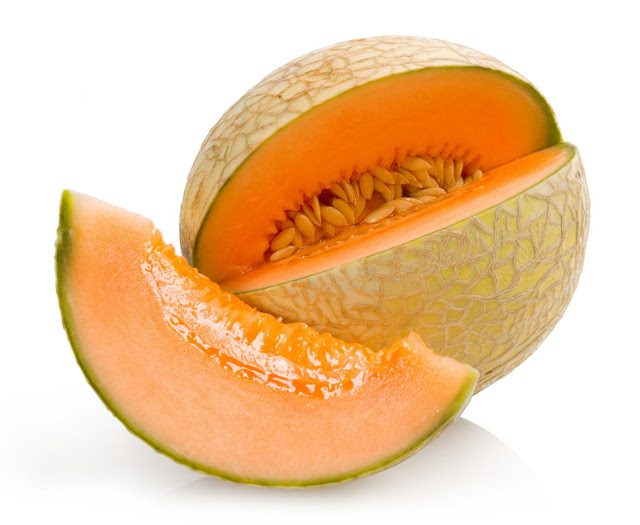
Rabbits are adorable pets known for their love of munching on fresh greens and vegetables. As a responsible rabbit owner, providing a balanced diet for your furry friend is essential. If you’ve ever wondered, “Can rabbits eat cantaloupe?” you’ll be delighted to know that this juicy fruit can indeed be a tasty addition to their diet. Let’s explore the benefits and considerations of feeding cantaloupe to rabbits.
Yes, rabbits can eat cantaloupe. Cantaloupe can be included in a rabbit’s diet in moderation, as long as it is given in small amounts. It is important to remove the seeds, but leaving the rind on is acceptable, as rabbits may choose to nibble on it or ignore it altogether. However, it is crucial not to provide rabbits with excessive amounts of cantaloupe due to its high sugar content. is a safe
Can Rabbits Eat Cantaloupe?

Cantaloupe is a refreshing fruit that offers a range of essential nutrients for rabbits. This delicious melon is low in calories and high in water content, making it a hydrating treat for your bunny. It is also a good source of vitamins A and C, which are crucial for maintaining a healthy immune system and promoting optimal growth.
Source : Wikipedia
Rabbits require proper hydration for healthy digestion. Cantaloupe’s high water content can help keep your rabbit well-hydrated and aid in smooth digestion. Including small portions of cantaloupe in your rabbit’s diet can contribute to overall digestive health.
We all know how important a strong immune system is, right? Well, rabbits are no exception! And here’s where Cantaloupe swoops in as a superhero in the vitamin department. Packed with abundant vitamin C, this luscious melon becomes a mighty ally for bolstering your rabbit’s immune defenses. Vitamin C acts as a powerful antioxidant, working tirelessly to shield their precious cells from harm and strengthen their immune system. Introducing cantaloupe into your rabbit’s diet gives their immune system an extra burst of energy, ensuring they stay healthy, active, and ready to conquer the world, one hop at a time.
The presence of vitamin A in cantaloupe promotes good eye health in rabbits. Regular consumption of this fruit can contribute to maintaining clear vision and preventing any potential eye-related issues.
Source : WebMD
Feeding cantaloupe to rabbits comes with its share of risks that should be taken into consideration. While cantaloupe can provide various health benefits, it’s important to be aware of the potential risks involved. One of the main concerns is the high sugar content in cantaloupe, which can lead to digestive issues, such as diarrhea or stomach upset, if given in excess.
Rabbits have sensitive digestive systems, and an overload of sugary fruits can disrupt the balance and cause discomfort. Additionally, cantaloupe seeds can pose a choking hazard or cause digestive blockages if ingested. Removing the seeds before offering cantaloupe to your rabbit is crucial to ensure their safety.
By being mindful of these risks and taking appropriate precautions, you can safely include cantaloupe as an occasional treat for your furry friend. If you follow all these guidelines, there is no risk of consuming the cantaloupes for your bunnies.
To avoid overfeeding your rabbit, introduce small cantaloupe pieces and observe their reaction. We will recommend you limit the intake to no more than 1 teaspoon per 2 lbs of your mature rabbit’s weight on a daily basis.

Our furry friends have their own language, and it’s up to us to listen and understand. So, be vigilant and attuned to any signs of overfeeding or allergic reactions in your rabbit. If you notice dreaded diarrhea making an unwelcome appearance or your bunny seems bloated and uncomfortable, it’s time to hit the pause button on the cantaloupe feast.
Remember, finding the perfect balance is the key to a healthy and happy rabbit. So, savor the joy of offering your bunny a delectable slice of cantaloupe, but always keep a watchful eye and let moderation guide your actions.
In addition to cantaloupe, several other fruits and vegetables are safe and healthy for rabbits. Some examples include:
- Apples (remove seeds)
- Blueberries
- Strawberries
- Celery
- Leafy greens (e.g., kale, thyme, romaine lettuce)
FAQs
No, removing the seeds from the cantaloupe before feeding it to your rabbit is best. The seeds can pose a choking hazard or cause digestive issues.
No, we will not recommend feeding cantaloupe to bunnies. It is best to wait until baby rabbits are at least three months old before introducing cantaloupe or any new food into their diet. Even then you have to begin with small portions and it is always good to consult with a veterinarian for appropriate timing and portion sizes.
Rabbits can have small amounts of cantaloupe as an occasional treat, ideally not more than a few times per week. Moderation is key to preventing digestive issues.
Yes, rabbits can eat honeydew melon in moderation. Like cantaloupe, it should be introduced gradually and in small portions to ensure proper digestion.
Bunnies can safely enjoy cantaloupe’s delicious and refreshing taste as part of their diet. However, observing your rabbit’s response and consulting with a veterinarian is vital to ensure their dietary needs are met. Remember, a well-balanced diet, including various fresh fruits and vegetables, is key to keeping your bunny happy and healthy.
By incorporating cantaloupe into your rabbit’s diet, you’re treating them to a delicious snack and providing them with essential health benefits. From hydrating their bodies and supporting digestion to boosting their immune system and maintaining clear vision, cantaloupe is a valuable addition to their menu. So go ahead, tantalize your furry friend’s taste buds with a juicy slice of cantaloupe, and let them enjoy its refreshing benefits. After all, a happy and healthy rabbit is a hoppy rabbit!




